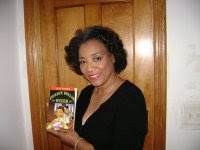Everyone knows that a defendant is "innocent until proven guilty." What goes hand-in-hand with that thought is the ability of a defendant to make bail. Bail is the great equalizer during the criminal justice process. Most of us are aware that the constitution gives us the right not to be subjected to "cruel and unusual punishment." An additional caveat of the 8th amendment to the constitution gives us the right to not have excessive bail or fines placed upon us.
The vagueness of that amendment gives judges a lot of leeway. A judge can set a reasonable bail based on the seriousness of the crime. The amount of the bail is not a measure of whether or not a person can afford it. Rather three major factors -- uncertainty, risk and overcrowded jails -- go into a judge's decision according to the book "Criminal Justice in Action" by Larry Gaines and Roger Miller. If there is a concern that a defendant will commit additional crimes, then bail can be set so high that the defendant cannot possibly afford it. There are even federal laws that allow judges to simply deny bail.
A defendant able to make bail can work, be with their family, and have access to sources to defend themselves. When determining the bail amount according to the Gaines-Miller book, a judge in Illinois is required to take 38 different factors into account. Fourteen of those factors involve the crime itself; two relate to the evidence gathered; four to the defendant's record, nine to the defendant's flight risk and immigration status, and nine to the defendant's general character.
An "incident" occurred on Feb. 5, 2005 involving four Chicago police officers and a man who would soon become known as the defendant. That man was a 54-year-old Chicagoan, married, property owner, former Chicago police officer. He has numerous plaques and accolades that line his walls and is currently a railroad police officer licensed to carry a weapon. During the course of the "incident" two Chicago police officers were wounded and the defendant was shot 28 times by the four police officers who he encountered.
Now that wasn't a typo you just read. Howard Morgan was shot 28 times and lived to tell about it. Lying in his hospital bed with 28 bullet wounds to his body, shackled to the hospital bed as if he could escape, Morgan was charged with four counts of first degree attempted murder of the police, three counts of aggravated battery and discharge of a firearm. With 28 bullet holes piercing his body and his stellar background, the judge who handled the Morgan case had the right to set a bail that would show fairness towards the defendant based on the "alleged" crime. Yet Judge Kathleen Mary Pantle set an outlandish bail of $2 million for Morgan.
When Morgan's attorney, retired Judge Leo Holt learned of the amount for bail, he immediately became incensed. Back then this is what Holt had to say, "In my years as a practicing attorney and the 18 years that I sat on the bench, I've never seen a bond like it. People charged with murder were out on less bond."
Morgan's wife was eventually able to secure $12,000 in donations for the bond. Morgan spent almost an entire year in Cook County jail unable to post the entire 10 percent of the bail amount until an anonymous donor gave the remaining $188,000 so that Morgan could be free. Remember people, this man had been shot 28 times. His flight risk if he could flee would be minimal.
It is not often that the black community can send a message to the legal system in a manner it can understand. But come Nov. 2, election day, we can send a strong message to the criminal justice system by voting 'No' on retaining Judge Pantle on the bench. Her decision to impose such a high bail on Howard Morgan is reflective of the basic unfairness of the criminal justice system when with the exception of race, all things were equal with him and the other police officers. It can only be the race of Howard Morgan that would have allowed him to be subjected to a bail higher than what a killer would have gotten. Punch 297 and tell everyone you know not to retain Judge Pantle on the bench. She deserves to pay a high price, the same as she asked of Morgan and his family. Only she'll pay by losing her role on the bench.
You Finished The Book - Now What Did You Think
13 years ago

1 comment:
I happened to hear a commercial on talk radio WVON about this story and asking voters not to retain the judge...well i couldnt remember the name as i was telling a coworker BUT it sure did ring a bell at the poll! The man's voice in the commercial spelled out Pantle's name & i remembered THAT while casting my vote. Knowledge is power!
Post a Comment